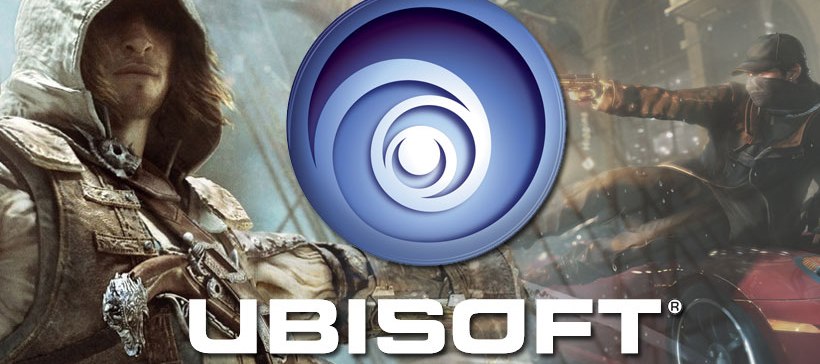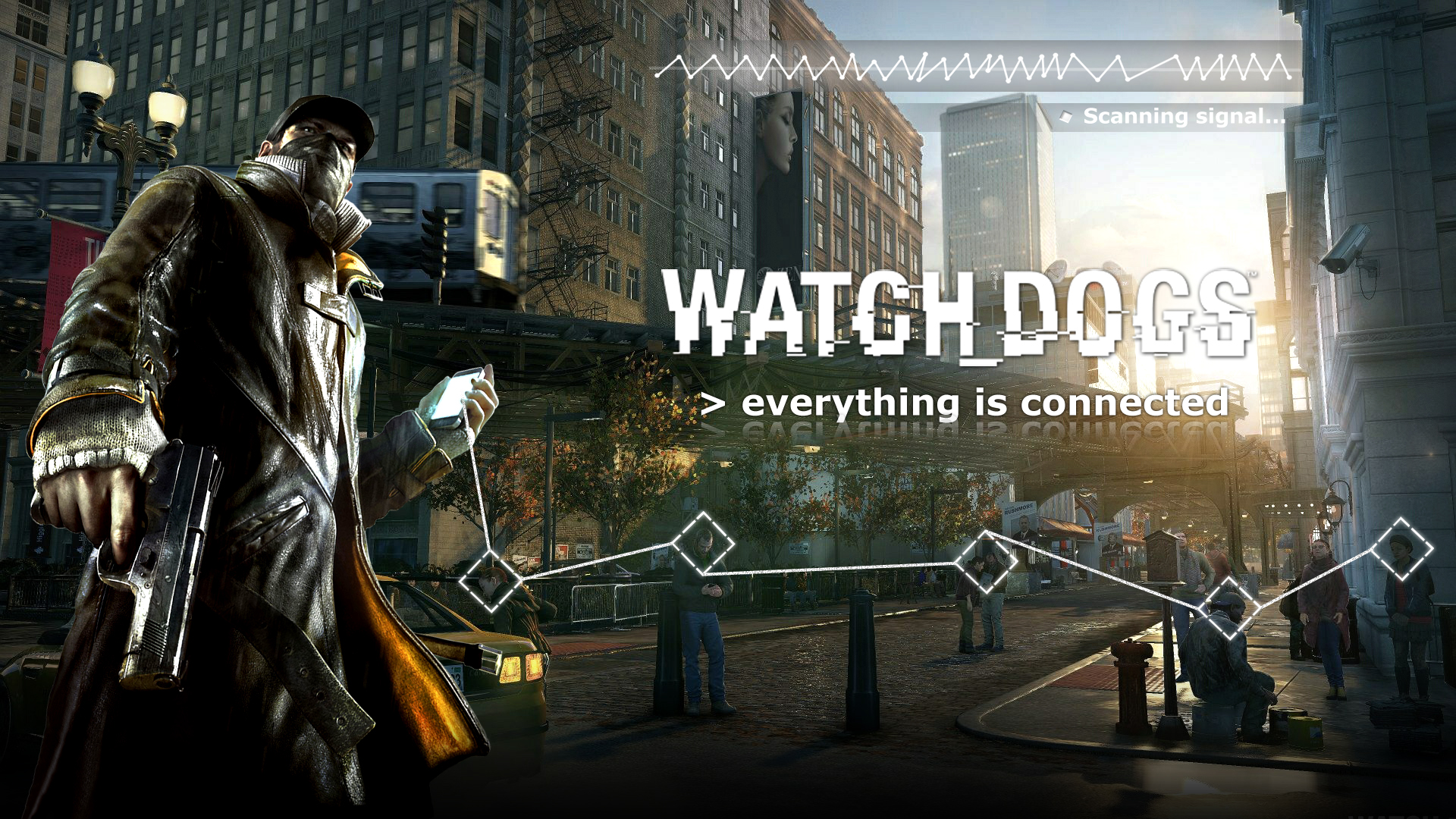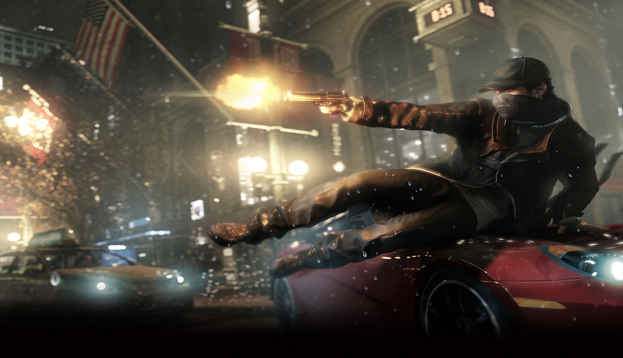 Tony Key
Tony KeyThe Ubisoft booth at E3 was crowded with attendees, and the noise level was high as software and demos were all around. We went behind the scenes at the Ubisoft booth to sit down with Ubisoft’s senior vice president of sales and marketing, Tony Key. He provided some insight into how Ubisoft plans to deal with new consoles, new IP, new sequels, and a very busy holiday season ahead.
Your CEO Yves Guillemot told me that Ubisoft will be increasing its marketing spend this year. What’s driving that?
By increasing our marketing, our goal is actually to lower our risk. We spend so much time, energy and money creating these experiences like Watch_Dogs and Assassin’s Creed, you need to match that now on the marketing side. You’re making a huge bet on the development side, you’ve got to be all in. It became very clear to us about two years ago that this is a blockbuster world we live in now. That means we have to be able to match the resources our production teams are putting in on the marketing side. You saw that with Assassin’s Creed III, that was our largest marketing campaign ever as a company. What’s interesting now is it doesn’t feel so big any more. This year we’re looking at Assassin’s Creed IV, and Watch_Dogs, and saying ‘That’s what it takes nowadays, that’s what we’re going to keep doing.’

Is the budget for Assassin’s Creed IV bigger than the budget for Assassin’s Creed III?
It’s not bigger, but it’s probably smarter. I think we’ll get more. With Assassin’s Creed III, that was the first time we really tried to go to the next level on the marketing. You’re talking double what we’ve ever spent before on marketing. When you suddenly double your marketing budget, you end up learning a lot of things about what works and what doesn’t work. We’re making smarter choices this year based on the experience. Each year we’re going to get smarter about that. We’ll get 20 percent more effectiveness out of the Assassin’s Creed IV money just because we’ve learned so much.
How is the marketing mix changing for Ubisoft?
The world seems to be moving towards these personalized experiences. That’s why open-world gaming is one of the big must-haves for this next generation. People want to have their personal experience when they’re playing the game, so it’s the same in marketing. We want to try and create marketing content that allows people to customize how they receive it, how they consume it. It’s so much broader now, we’re all learning so much more every day about how we can utilize social media successfully. Assassin’s Creed has 4 to 5 million people in their Facebook community right now, so for us it’s how do you leverage that How do we leverage our hundreds of thousands of Twitter followers, how do we leverage the fact that we’re getting 50 million views on YouTube of Assassin videos Those are things that just a few years ago we didn’t even have access to, but they do take resources. As much as everyone likes to thing they’re completely additional, they still cost money.
Our media mix has evolved over time. TV plays a different role than it did five years ago, but our research shows that it still matters. We have a lot more opportunities in the digital space. What we like about the digital and social space is the ability to measure the effectiveness of what we’re doing. But just because you can measure it doesn’t mean you have the ability to measure it in-house. You have to develop those tools, you have to develop that experience, you have to manage those big data questions, which data matters, which data doesn’t matter and what is it really telling me That’s many jobs at a company like ours now, and I actually have a hard time finding people to do it.
It’s a relatively new skill set to analyze that data and make it actionable for the marketing team. For us, that’s the next frontier. We thought we had business intelligence, and every day we find out how much less we have than what we want. The more we learn, the more we realize there’s so much more that we can do to understand what our customer wants, how they want to consume our content, which vehicles are effective and which are not. I spend a lot of my time doing that.
Watch_Dogs is a new IP without the years of audience building that Assassin’s Creed has. How does that alter the marketing challenge?
That’s part of the reason why it’s so hard to bust out a new IP. There’s no proven DNA for people to latch onto for people to say ‘I understand what that brand is about.’ Especially when you’re annualizing something like Just Dance or an Assassin’s Creed, you understand that experience and you either want to be part of that community or you don’t. We can tap into that and get a faster start. With Assassin’s Creed IV, we start with those 4 million users on our Facebook page. With Watch_Dogs, we’re in acquisition mode — we’re trying to find people who are intrigued by the concept of what Watch_Dogs is all about, about the surveillance and the hacking. It’s a whole different strategy in the social space — we’re trying to acquire people, where with Assassin’s Creed we’re trying to get more engagement.
We’re rolling the boulder up the hill, and eventually you get to the top and you have that momentum. Even with all the great press and all that excitement around Watch_Dogs, there’s still less awareness outside of the core gaming community than we need to have when we finally launch that game. Because now we’re in blockbuster world, and Watch_Dogs needs to be a blockbuster because it deserves to be and as a company that’s what we need it to be. It’s the most ambitious production in the history of Ubisoft, and we need to make sure that everybody who likes videogames has a chance to decide that this game is going to be hot. That’s the hard part about a new brand, that awareness outside the core needs to be created.
Watch_Dogs is ambitious in the sense that the budget is higher, or the design is more ambitious, or both?
I will say that Watch_Dogs cost more than Assassin’s Creed I, that was in 2007. The point is games have been getting more and more expensive. With Assassin’s Creed, it was an established brand when we went to make Assassin’s Creed II. We had a technology baseline, we know what the game is about and what things work. What we’re doing at that point is looking for innovation to add on top. The ambition on Assassin’s Creed is to make a great game every year; we know we have fans. With Watch_Dogs we went straight to expensive. We’ve spent four years by the time this thing launches building this product. We didn’t even know what next-gen specs would be when we started. For us, we have ambitions beyond any new brand that we’ve ever introduced as far as sales. We want it to be the biggest new brand ever introduced in the video game space.
You want Watch_Dogs to be the foundation of a big franchise, then?
Absolutely. That’s what all our games are about; we won’t even start if we don’t think we can build a franchise out of it. There’s no more fire and forget – it’s too expensive.
We feel like we’re in a really good place with Watch_Dogs, but until we’re the biggest game of the year we’re not going to be satisfied.

This fall there’s going to be tremendous attention focused on games for new consoles, but the majority of revenue will come from games for current-gen systems. Simultaneously you want to say how great your games are for new consoles, but also how the games you have for existing consoles are the best ever. That’s a difficult line to walk, isn’t it?
With Assassin’s Creed IV and Watch_Dogs, we’re shipping those games also on next-gen. We do understand that the most likely the majority of sales will occur on the current generation because people just won’t be able to get the hardware, either Xbox One or PS 4, the minute they want it because they won’t be able to make them fast enough. Those machines are going to sell well, and just like most hardware launches they’re going to be constrained for a while. The key is, when you’re making a truly next-gen experience like Watch_Dogs, it’s that the DNA of what makes that game special still exists in the current gen.
That’s what I think they’ve changed with Watch_Dogs; next-generation absolutely adds more power, more density in the environment, more immersion. But what’s cool about the game, the core cool thing, needs to translate to current-gen and it does. We haven’t actually shown those versions of the game off yet. What I like about the brand is it’s really next-gen game design, and that’s not hardware dependent. Watch_Dogs is a game that transcends hardware in my opinion. It’s really what the game is about that’s special, not that it’s on a PS 4 or a PC or an Xbox One. It’s going to be a great game on PS3, it’s going to be a great game on Wii U, it’s going to be a great game on Xbox 360.
Last we cleaned up at E3 because we were pretty much the only next-gen game around. Watch_Dogs for us is really a franchise because we’re tapping into something people really care about, never more than last week than when the NSA PRISM scandal broke.
(Editor’s note: This is part one of a two-part interview. Read part two here.)

